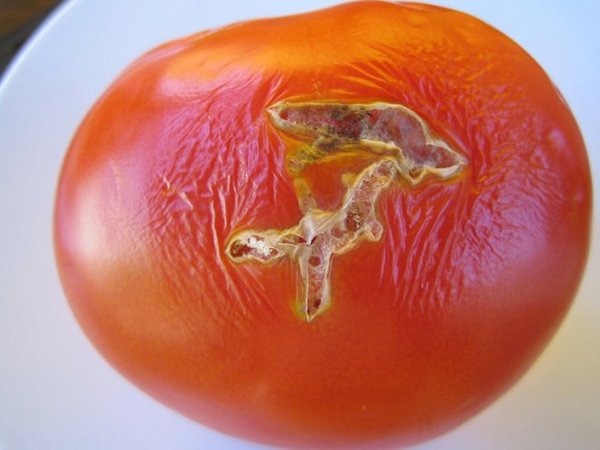Nigeria Counts N1.3 Billion Loss To ‘Tomato Ebola’ In Three States – Minister Raises Alarm

By Onoja Baba, Nigeria
Nigeria has suffered a staggering financial blow exceeding ₦1.3 billion following the outbreak of the destructive tomato pest Tuta absoluta, popularly referred to as “Tomato Ebola”, across three major tomato-producing states, Kano, Katsina, and Kaduna.
The Minister of Agriculture and Food Security, Senator Abubakar Kyari, made this known on Wednesday during a capacity-building workshop for financial institutions in Abuja, jointly organized by HortiNigeria and the Nigeria Incentive-Based Risk Sharing System for Agricultural Lending (NIRSAL).
Kyari revealed that the pest invasion, which can wipe out tomato fields within 48 hours, has already triggered a sharp price hike.
A 50kg basket of tomatoes, once sold at ₦5,000, now commands as high as ₦30,000, worsening Nigeria’s food inflation and hitting low-income households the hardest.
“This crisis has exposed the vulnerability of our horticultural systems. We must respond urgently with integrated pest management strategies and invest in resilient crop varieties,” Kyari warned.
According to the minister, tomatoes and peppers, essential staples in Nigerian meals, are now driving the food price index. Citing the 2024 National Bureau of Statistics (NBS) report, Kyari noted a 320% year-on-year price increase in tomatoes, underscoring the severe impact on household budgets and national food security.
Kyari called for urgent reforms in Nigeria’s horticulture sector, describing it as a “sleeping giant” with immense untapped potential for economic growth, job creation, and nutrition improvement. He highlighted the sector’s unique advantages: high value per hectare, shorter crop cycles, multiple harvests, and strong links to processing, retail, and export markets.
“The horticulture value chain offers climate resilience, peri-urban food access, and can serve as a dynamic engine for inclusive rural transformation,” he said.
He further emphasized that crops like tomatoes, pineapples, cucumbers, citrus, and plantains are gaining traction as commercial crops with significant domestic and export demand.
He said boosting their availability would combat malnutrition and create employment opportunities, especially for women and youth.
Addressing financial institutions, Kyari urged them to move beyond traditional lending methods and develop fit-for-purpose financial instruments tailored to the unique needs of the horticulture value chain, from seed procurement to market distribution.
“By investing wisely in this sector, you are not just financing crops; you are financing livelihoods, nutrition, and resilience,” Kyari concluded, calling for collaborative action to transform Nigeria’s food systems through horticulture.





